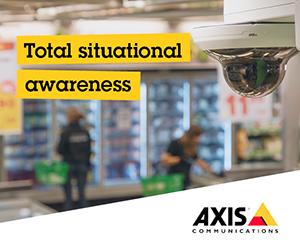INDUSTRY FOCUS
Chargeback Disputes
Article submitted by Abigail Singer. Abigail is a content writer at Riskified, an AI platform optimising the eCommerce journey for enterprise retailers by instantly and accurately differentiating legitimate customers from bad actors.
One of the biggest challenges eCommerce retailers face is avoiding the rising number of chargebacks resulting from CNP fraud. In a 2016 study, online merchants reported that around half their fraud-related revenue loss was a direct consequence of chargebacks. And by the end of this year, we project that $48 billion will be paid in chargebacks globally.
Many of these losses are the result of clear-cut fraud – where stolen credit card information is used to make a purchase without the authorisation of the cardholder. Other common reasons for filing a chargeback can include an error on the merchant’s end (e.g. ignoring a cancellation) or item not received. But an increasing number of chargebacks are due to friendly fraud, when an individual disputes a purchase, despite having authorised and received it.
These types of chargebacks are much harder to prevent, and the only way to recoup this ‘lost’ revenue is for businesses to provide compelling evidence that the genuine cardholder did indeed approve the purchase. Because any customer can file a chargeback, and banks are more inclined to take their side, the more evidence a merchant is able to provide supporting the legitimacy of a transaction, the better their chances of successfully retrieving revenue they’d assumed lost. Banks need to be absolutely certain of abuse, so submitting partial evidence like parcel tracking information indicating the order reached its intended destination usually won’t suffice.
There is a host of potential customer data that can be used as proof that a transaction was authorised by the genuine cardholder and creating a checklist (like the example below) will help ensure that data collection is streamlined and embedded in a merchant’s business flow.
● Did the same customer ever make previous purchases with this card and online identity that didn’t result in a
chargeback?
● Does the billing address on record with the credit card issuer match the billing address provided at the time of
purchase?
● Is the IP location (the customer’s geographical location) in close proximity to the billing address?
● Does the address linked to the email address match the billing or shipping address?
● Does the email address itself contain the same name provided in the billing or shipping details?
● Is the email address linked to social profiles that match the customer’s name?
● Do the shipping or billing details provided match a public listing?
● In the case of a digital good, was it downloaded through the same device used to make the purchase?
Retailers should also tailor their evidence to reflect the nature of the transaction. For example, where an order is made over the phone, they should try and connect the number to the customer (as an email address won’t be as relevant). In addition, by explicitly expressing why certain evidence has been included, banks are more likely to arbitrate in a merchant’s favour. It’s important to note that each payment provider or issuing bank has their own processes, requirements, and varying chargeback reason codes, which merchants should familiarise themselves with.
Proving cases of chargeback abuse can be a resource intensive and challenging process. But merchants can win more disputes (and eventually create an automated process) by efficiently collecting the customer data that will differentiate between unauthorised and authorised transactions. And given that friendly fraud is often committed by repeat offenders, fighting it can go far in protecting a brand and improving bank relationships.
To find out more about how Riskified assists eCommerce retailers to optimise the online shopping journey and boost revenue (including through chargeback representment), visit our website.





